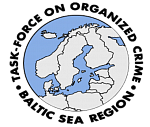Shanghai Cooperation Organization
SHANGHAI COOPERATION ORGANIZATION
The establishment of the Shanghai Cooperation Organization (SCO) was announced on June 15, 2001 in Shanghai (PRC) by the Republic of Kazakhstan, the People's Republic of China, the Kyrgyz Republic, the Russian Federation, the Republic of Tajikistan, the Republic of Uzbekistan. In 2017, India and Pakistan became members of the organization.
In 2002, at the meeting of the Council of Heads of SCO Member States in St.Petersburg, the Charter of the Shanghai Cooperation Organization was signed and entered into force on September 19, 2003. This is a basic statutory document that fixes the goals and principles of the organization, its structure and main activities.
According to the Charter, one of the key tasks of the SCO is developing multifaceted cooperation in order to jointly ensure and maintain peace, security and stability in the region, to move towards the establishment of a democratic, just and rational new international political and economic order. The member states adhere to the principles of equality of all member states, search of common positions on the basis of mutual understanding and respect for opinions of each of them, being not directed against other states and international organizations. All decisions in the organization are made by consensus.
The highest decision-making body in the SCO is the Council of Heads of Member States (CHS). It meets once a year and makes decisions and instructions on all important issues of the organization. The Council of Heads of Government (Prime Ministers) of the SCO Member States (CHG) meets once a year to discuss the strategy of multilateral cooperation and priority areas of interaction within the organization, to address fundamental and topical economic and other issues, and also approves the annual budget of the SCO. The Council of Ministries of Foreign Affairs (CFM) envisages the main issues of the SCO's activities in preparation for the CHS meetings, makes decisions on holding events dedicated to international and regional issues.
The legal framework of the SCO includes over 80 international treaties and agreements of an interstate, intergovernmental and interdepartmental nature. In addition to the meetings of the CHS, CHG and CFM, there are mechanisms for meetings at the level of heads of the following ministries and departments: security agencies, defense, economy, culture, health, education, transport, emergencies, science and technology, agriculture, tourism, industry, energy, social security, sports, law enforcement and judicial authorities.
The SCO coordination mechanism is the Council of National Coordinators of the SCO Member States (CNC).
The organization has 2 permanent bodies – the SCO Secretariat in Beijing and the Executive Committee of the Regional Anti-Terrorist Structure (RATS) SCO in Tashkent. The SCO Secretary General and the Director of the SCO RATS Executive Committee are appointed by the Council of Heads of States for a three-year term. Since January 1, 2022, Zhang Ming and R.E.Mirzaev have been the SCO Secretary General and Director of the SCO RATS Executive Committee, respectively.
The SCO has established partnerships with such international organizations and structures as the CIS, ASEAN, CSTO, APEC, ESCAP, UNODC, IRC, UNESCO, UNOCHA, FAO, CICA, WTO (World Tourism Organization), EEC, LAS.
The official languages of the SCO are Russian and Chinese.
4 countries have the status of an observer state at the SCO - the Islamic Republic of Afghanistan, the Republic of Belarus, the Islamic Republic of Iran, Mongolia. In 2022, the Memorandum on Iran's obligations in order to obtain the status of the SCO member state was signed, and the procedure for Belarus' admission to the organization was launched.
14 countries are SCO dialogue partners – the Republic of Azerbaijan, the Republic of Armenia, the Arab Republic of Egypt, the Kingdom of Cambodia, the State of Qatar, the Federal Democratic Republic of Nepal, the Kingdom of Saudi Arabia, the Republic of Turkey, the Democratic Socialist Republic of Sri Lanka, Maldives, the United Arab Emirates, Republic of the Union of Myanmar, Bahrain, the State of Kuwait.
The efforts of the Russian Federation are aimed at further consolidating the SCO, building up cooperation in all areas of its activity, and consistently strengthening the organization's role in international affairs.

